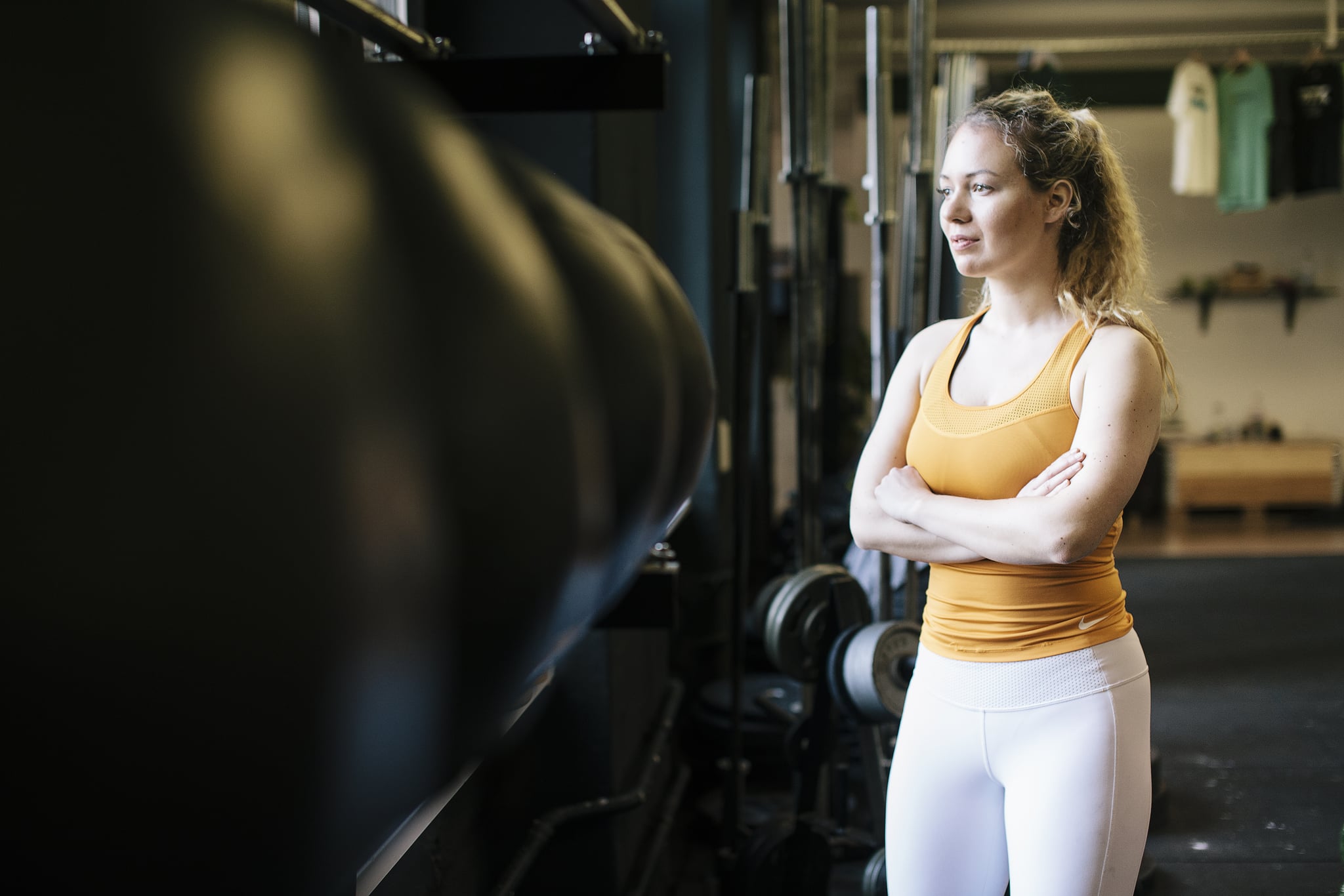

There's nothing wrong with wanting to exercise - it's good for you! - or eat healthier. But one registered dietitian and personal trainer is making a strong case for why you need to check yourself: what are you really eating that salad or taking Orangetheory for? Registered dietitian and personal trainer Lauren Cadillac, CLT, calls herself the "Feel Good Dietitian." That's because her approach to food and exercise is about how you feel, not how you look. It "focuses on turning your attention inward rather than outward," she told POPSUGAR, "learning to listen to what your body is telling you and asking for."
Thinking in Extremes: the 1 Mistake You're Making When It Comes to Weight Loss
Lauren said that most people focus on food and exercise as a way to "get thin and shrink their bodies rather than a way to nourish and celebrate them." This, in turn, leads to unrealistic goals that are either unattainable, or attainable but not easily sustained. An example of an extreme goal would be going from zero exercise to CrossFit five times per week, she said, and going from ordering out for breakfast, lunch, and dinner to prepping home-cooked keto meals around the clock. When you go from one extreme to the other or simply think of food and fitness in extremes - people are being "good" or "bad;" on a diet or "off the wagon" - this can create a viscous cycle.
"People feel like they need to make a change, so they start working out every single day and cut out entire food groups," Lauren explained. "Then, they either get hurt or burnt out, or inevitably crave something that is 'off limits'." Guilt ensues - which, again, isn't what you want - and the cycle continues. This establishes an unhealthy relationship with diet and exercise. Instead, the goals that Lauren sets with her clients focus on ways to improve their physical and mental health, she said, and she named the SMART acronym as a good place to start for behavioral changes: goals are Specific, Measurable, Attainable, Realistic, and Time-oriented.
Lauren continued, "When every single meal becomes about how you look, it disconnects you from how you actually feel. It diminishes the trust you have in your body and can lower self-esteem." And, when people are exercising just for aesthetics and they don't achieve that "standard" our culture has set, it's easy to give up. We also forget how fun movement can be, she said (think childhood bike rides and tag on the playground). Working out doesn't just aid in weight loss or help you get that six-pack; there are so many other health benefits like stress relief and reduced mortality risk, Lauren noted.
When asked about the "look good, feel good" mentality, Lauren said, "Beauty is in the eye of the beholder. We are taught that once we look a certain way, we will feel better. The truth of it is, our insecurities are in our heads, and if we don't address them, no amount of weight loss or 'sculpting' will ever be enough." She has her clients focus on intuitive eating and hunger/fullness cues as well as fitness that's, well, downright enjoyable. Though everyone is different and goals will be specific to you, ahead, check out some of her top tips for how you can maintain this perspective, too.
How to Maintain a Healthy Relationship With Food and Exercise
- Ditch the diet mentality. "Let go of the idea the there is a magical plan that will finally be 'the one," Lauren said. Instead, start to make peace with food and see some food as more nutritious than others rather than "good" or "bad".
- Eat when you're hungry and stop when you're full (which she talks about more here). Think of a hunger/fullness scale from one to 10 - one being you're so hungry you could pass out, and 10 being you're sick to your stomach. Try to eat when you're somewhere around a three, when you want food but aren't so hungry that you eat fast and overshoot to 10. Do your best to stop around a six or seven when you're comfortably full and satisfied.
- Learn to cope with emotions without using food.
- Choose food you enjoy eating so you actually feel satiated, and choose food that feels good in your body (food that gives you energy and is easy on your digestive system).
- Find a type of exercise that you like doing. "Let go of the idea that unless it's a 60-minute HIIT class or powerlifting session, it doesn't count," Lauren said. "All movement adds up and should bring you joy."



0 comments :
Post a Comment